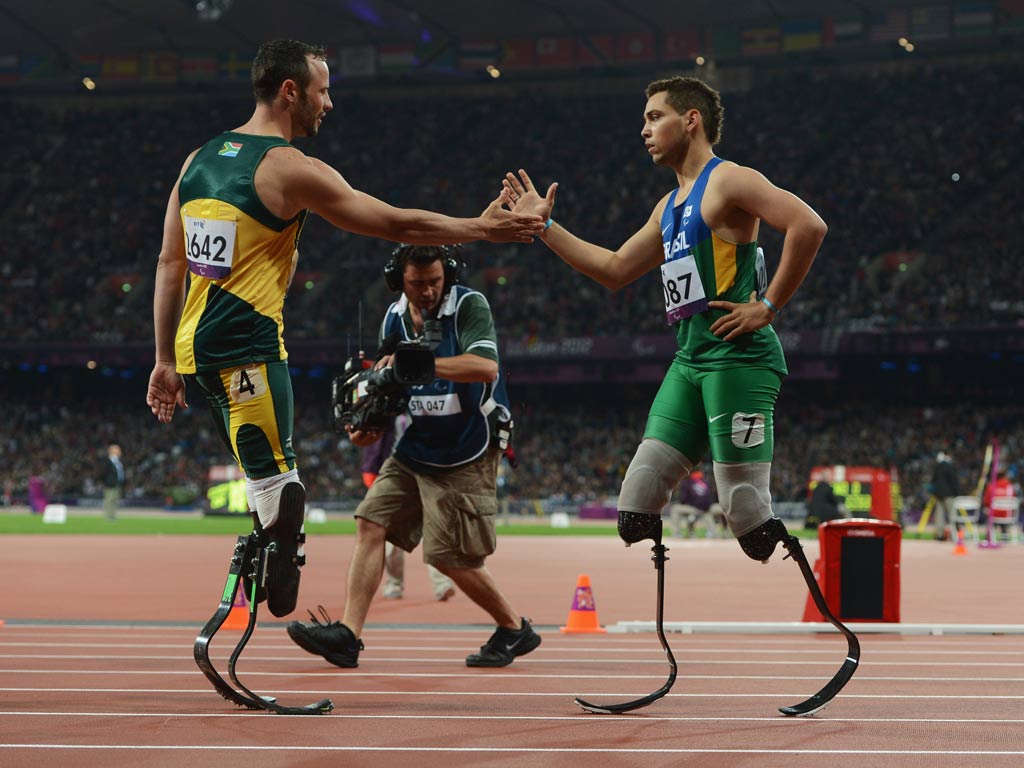Daraine Mulvihill: Battle of the blades is more about bionics than athletics

Your support helps us to tell the story
From reproductive rights to climate change to Big Tech, The Independent is on the ground when the story is developing. Whether it's investigating the financials of Elon Musk's pro-Trump PAC or producing our latest documentary, 'The A Word', which shines a light on the American women fighting for reproductive rights, we know how important it is to parse out the facts from the messaging.
At such a critical moment in US history, we need reporters on the ground. Your donation allows us to keep sending journalists to speak to both sides of the story.
The Independent is trusted by Americans across the entire political spectrum. And unlike many other quality news outlets, we choose not to lock Americans out of our reporting and analysis with paywalls. We believe quality journalism should be available to everyone, paid for by those who can afford it.
Your support makes all the difference.I was really disappointed with what I saw from Oscar Pistorius on Sunday night. I don't think it will do his image any lasting damage, he's too nice and too well loved for that. But it has re-ignited the debate about blades once again.
It was only a matter of time because we have been here before. When Oscar Pistorius was fighting to be allowed to compete in the Olympics and people said he had an unfair advantage, I thought it was ludicrous.
Being a double leg amputee myself, I know very well how tired you get, how much more energy you need, just walking places, going about your everyday life. And over the last few months I've been learning to run on blades. As a novice I can tell you they are really difficult to use. The strength, the coordination and the balance you need are immense.
But if blade-runners are starting to give themselves an advantage through building their height, that's different territory. Brazil's Alan Oliveira, is, like Oscar said, taller on his blades than he was at the world championships last year. His walking blades, that he wore on the podium to receive his gold medal, are shorter than his competition blades. In my opinion, if that is the blade length he feels comfortable and balanced on in everyday life, then that should be the length of his running blades too – I know Oscar's are.
Whatever standard length Oscar has to meet to run in the Olympics, that should apply to all athletes in the Paralympics too. If you don't have that, then you are looking at bionics, not athletics. Technology competing against technology. You already hear stories about equipment out there, new types of blade, that will allow Paralympic times to become faster than Olympic times. Where does it end? The argument will rage on beyond these Paralympic Games.
I can't wait now until the rematch between Oscar and Oliveira: the 100 metres on Thursday night and the 400 metres on Saturday.
Oscar has his chance to settle the score. If he loses again, the blade question will be blown wide open.
Daraine Mulvihill is a Paralympics presenter for Channel 4
Join our commenting forum
Join thought-provoking conversations, follow other Independent readers and see their replies
Comments